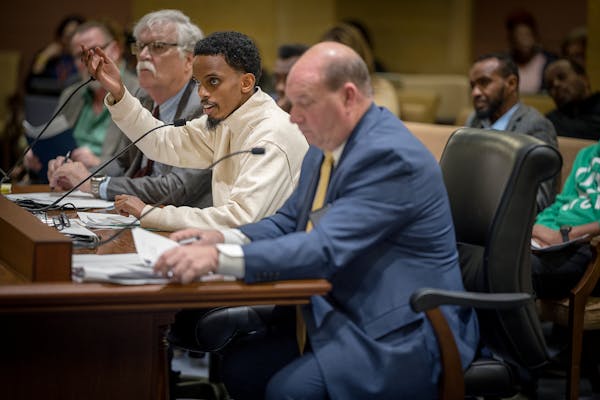WASHINGTON – Minnesota is experiencing a different kind of response to the Syrian refugee backlash.
Refugee resettlement organizations in the state have been swamped over the last two weeks with donations of coats, blankets, diapers, cash and countless volunteer requests. Many of these items are coming from states where governors have said they won't welcome the refugees from the war-torn region out of fear that terrorists will slip into the country.
"They say they want to help Syrian refugees," said Jane Graupman, executive director of the International Institute of Minnesota. After hearing the state hasn't taken in any new Syrians this year, "They say it doesn't matter, we just want to help."
Minnesota has long been a national leader in the settlement of refugees, from the first Filipino immigrants in the 1920s, to the influx of Hmong starting in the late 1970s to the first wave of East African refugees around 1990. In the last few years, the majority arrive from Myanmar, Somalia, Afghanistan, Iraq, Eritrea, Ethiopia and Congo.
Three of the state's five organizations with federal government contracts to resettle more than 2,000 refugees a year say their phones won't stop ringing. People want to put up refugees in their spare bedrooms, help them with English classes and donate warm clothes, since the majority of those settling in Minnesota come from dramatically warmer climates.
Graupman's organization resettled 465 people last year, mostly from Myanmar and Somalia. In the last two weeks, the International Institute has had 35,000 new Facebook members and more than 500 calls to volunteer.
The organization's lobby is now crammed with donations from Minnesotans, as well as people from 24 other states including the Dakotas, Texas, Nebraska and Iowa — all states with leaders who have said refugees aren't welcome.
The Islamic State in Iraq and the Levant, whose stronghold is in Syria, claimed responsibility for the coordinated shootings and bombings in Paris that killed more than 130 people earlier in November.
The attacks sparked a raging debate about the U.S. refugee program and how many Syrian refugees should be allowed in as they flee their war-torn country. Some countries, including Germany and Turkey, have accepted hundreds of thousands of Syrian refugees, with pledges of more.
The Obama administration has committed to allowing in 10,000 Syrians in 2016, up from roughly 1,800 this year.
But since the Paris attacks, 31 governors across the country have said refugees are not welcome in their states — even though they have questionable legal authority to challenge the federal program. DFL Gov. Mark Dayton has said the state would continue to welcome refugees and has faith in the U.S. State Department's process to screen out would-be terrorists.
The U.S. House of Representatives, with the help of 47 Democrats including Minnesota Reps. Collin Peterson, Tim Walz and Rick Nolan, passed a measure last week that would place additional requirements and restrictions on refugees coming in from Syria and Iraq.
Earlier this week, 18 Republican members of the Minnesota Senate sent a letter to Dayton asking him to temporarily halt the acceptance of Syrian refugees until there are strong assurances that terrorists cannot sneak into the country.
The issue has emerged as fodder on the presidential campaign trail, particularly by GOP presidential hopeful Donald Trump.
"A friend of mine lives in Minnesota, and he calls me up and he says, 'Can you imagine? It's 130 degrees in Syria and now they want to send some of them up to Minnesota where it's 30 degrees,' " Trump said to supporters in Tennessee in early November. "These people are going to be very, very unhappy … It's cold, and beautiful, but it's cold."
The debate caught the attention of Annie Scott Riley, a Minneapolis mother who said she decided to donate cash and coats to the International Institute.
"I believe in helping refugees and because it's in the front of my awareness because of everything in the news," Riley said. "To know we can help refugees coming into Minnesota … that's a good thing."
Both the Minnesota Council of Churches and Catholic Charities of St. Paul and Minneapolis also report surges in volunteer requests.
At the Council of Churches, they are at capacity in handling volunteers and are placing them on wait lists. Volunteers do everything from setting up apartments, shuttling refugees to appointments or helping them learn English.
"We have four to five times the number of volunteer inquiries and interest," said Kristine Bjerkaas Friesen, director of refugee services at the Minnesota Council of Churches. "It's a wonderful problem to have."
Since her donation earlier this week to the International Institute, Riley said she has shared the news on social media and told others how to help.
"It's kind of our way of saying, 'Hey I believe in this,' " she said. "It's like casting a vote without having a ballot."
Allison Sherry • 202-383-6120
White House environmental official tours PFAS-site in Lake Elmo

Twin Cities witnesses testify they saw no meals served in Feeding Our Future trial

